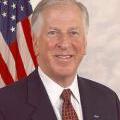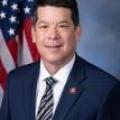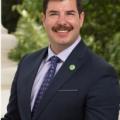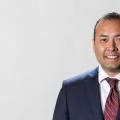31st Assembly District
Not in 31st Assembly District? Find your guide.
RETURN BALLOTS BY TUESDAY, MARCH 3RD
The Courage California Voter Guide compiles the information that allows you to make informed decisions about the races on your ballot, based on your values. Vote in every race on your ballot! It's our right and our responsibility. Please share this guide with your friends and family.
Voting has changed in Fresno County this year. The Voter’s Choice Act was enacted in the county to make voting more convenient. Changes include an expanded period of in-person early voting, every registered voter in the county will receive a vote-by-mail ballot, and every registered voter in the county is able to vote in-person at any Vote Center in their county. Have questions about the changes to voting in Fresno County? Find out how to vote in Fresno County.
Congress
5th Congressional District
Representative Mike Thompson is from St. Helena, CA. He is the incumbent, having served in this position since 1999. According to campaign materials, he is running for re-election because he understands how to bring people together to solve his district’s needs.
In Congress, Rep. Thompson has advanced efforts to rebuild the middle-class, increase access to healthcare, ensure seniors and veterans aren’t left behind and preserve the environment. He currently sits on the House Ways and Means Committee, as well as the Health Subcommittee and serves as Chair of the Select Revenue Measures Subcommittee. Prior to his election to Congress, he worked in the California State Senate and the United States Army, where he was recognized with a purple heart for his service.
Rep. Thompson has progressive positions when it comes to gun safety legislation and increasing access to affordable healthcare. That said, he has unfavorable positions when it comes to immigration and is a member of the moderate Blue Dog Coalition.
Rep. Thompson is being challenged by Jason Kishineff (D), John Wesley Tyler (D), and Scott Giblin (R). According to recent election results, Democrats usually win this seat. Though we disagree with Rep. Thompson's stances on immigration and his affiliation with the Blue Dog Coalition, his relationships with partners, his position of power in Congress, his progressive position on issues like gun safety, and his Democratic opponents' lack of viability makes Thompson the strongest choice in this race.
Representative Mike Thompson is from St. Helena, CA. He is the incumbent, having served in this position since 1999. According to campaign materials, he is running for re-election because he understands how to bring people together to solve his district’s needs.
In Congress, Rep. Thompson has advanced efforts to rebuild the middle-class, increase access to healthcare, ensure seniors and veterans aren’t left behind and preserve the environment. He currently sits on the House Ways and Means Committee, as well as the Health Subcommittee and serves as Chair of the Select Revenue Measures Subcommittee. Prior to his election to Congress, he worked in the California State Senate and the United States Army, where he was recognized with a purple heart for his service.
Rep. Thompson has progressive positions when it comes to gun safety legislation and increasing access to affordable healthcare. That said, he has unfavorable positions when it comes to immigration and is a member of the moderate Blue Dog Coalition.
Rep. Thompson is being challenged by Jason Kishineff (D), John Wesley Tyler (D), and Scott Giblin (R). According to recent election results, Democrats usually win this seat. Though we disagree with Rep. Thompson's stances on immigration and his affiliation with the Blue Dog Coalition, his relationships with partners, his position of power in Congress, his progressive position on issues like gun safety, and his Democratic opponents' lack of viability makes Thompson the strongest choice in this race.
13th Congressional District
Representative Lee is from El Paso, TX, and moved to California in 1960. She is the incumbent, having served in Congress since 2013. According to campaign literature, Rep. Lee is running for re-election to continue her fight for everyone’s equal rights and to be the advocate her district needs in Congress.
In Congress, Rep. Lee has advanced initiatives to address issues of poverty and inequality. She was also one of the leading voices of opposition against the authorization for the use of military force following September 11th. Rep. Lee currently sits on the House Committee on Appropriations and the House Committee on the Budget. Prior to Rep. Lee’s election to Congress, she served in the California State Assembly and State Senate, where she authored over 60 pieces of legislation on issues pertaining to public safety, access to affordable and quality education, LGBT rights, environmental protections, and criminal justice reform.
Rep. Lee is running against Nikka Pitterman (R). Rep. Lee is the best progressive choice because of her legislative track record and her continued efforts to fight for equality for all.
According to our analysis, Rep. Lee is the strongest choice for progressive leadership in office.
Representative Lee is from El Paso, TX, and moved to California in 1960. She is the incumbent, having served in Congress since 2013. According to campaign literature, Rep. Lee is running for re-election to continue her fight for everyone’s equal rights and to be the advocate her district needs in Congress.
In Congress, Rep. Lee has advanced initiatives to address issues of poverty and inequality. She was also one of the leading voices of opposition against the authorization for the use of military force following September 11th. Rep. Lee currently sits on the House Committee on Appropriations and the House Committee on the Budget. Prior to Rep. Lee’s election to Congress, she served in the California State Assembly and State Senate, where she authored over 60 pieces of legislation on issues pertaining to public safety, access to affordable and quality education, LGBT rights, environmental protections, and criminal justice reform.
Rep. Lee is running against Nikka Pitterman (R). Rep. Lee is the best progressive choice because of her legislative track record and her continued efforts to fight for equality for all.
According to our analysis, Rep. Lee is the strongest choice for progressive leadership in office.
21st Congressional District
Rep. Cox was born in Walnut Creek, California and grew up in the Central Valley, the son of immigrants. He is the incumbent, having served in this position since 2019. According to campaign materials he is running to keep his seat to continue serving the working families of the Central Valley.
In his first term in Congress, Rep. Cox has worked to secure funds for essential water infrastructure improvements in the Central Valley, to improve healthcare delivery and asthma treatment in rural communities, and to extend clean energy tax credits for business owners. He has also proposed legislation that could help dozens of cities in his district achieve safe drinking water standards, working closely with cities and environmental justice groups across the Valley to draft the bill. Rep. Cox currently chairs a subcommittee of the House Committee on Natural Resources. Prior to his election to Congress, Rep. Cox was an engineer and also created the Central Valley Fund, which raises money for projects located in economically disadvantaged neighborhoods throughout the Central Valley.
Rep. Cox has shown strong support for farmers, rural communities, and veterans in Congress. That said, he has at times voted in support of amendments that have the effect of weakening progressive legislation.
Unfortunately, Rep. Cox isn’t without complications. His eyebrow-raising business history and practices have come under scrutiny and lawsuits have surfaced accusing Rep. Cox of committing fraud and owing money to investors.
Rep. Cox is being challenged by David Valadao (R), who he bested in 2018 by less than 1,000 votes (and has his own questionable financial history). He is also challenged by Roque "Rocky" De La Fuente (R) and Ricardo De La Fuente (D). According to recent election results, it's rare that Democrats win this seat as Rep. Cox did in 2018. His track record of fighting for Central Valley families and his strong base in a recently flipped district makes him the strongest choice in this race.
Rep. Cox was born in Walnut Creek, California and grew up in the Central Valley, the son of immigrants. He is the incumbent, having served in this position since 2019. According to campaign materials he is running to keep his seat to continue serving the working families of the Central Valley.
In his first term in Congress, Rep. Cox has worked to secure funds for essential water infrastructure improvements in the Central Valley, to improve healthcare delivery and asthma treatment in rural communities, and to extend clean energy tax credits for business owners. He has also proposed legislation that could help dozens of cities in his district achieve safe drinking water standards, working closely with cities and environmental justice groups across the Valley to draft the bill. Rep. Cox currently chairs a subcommittee of the House Committee on Natural Resources. Prior to his election to Congress, Rep. Cox was an engineer and also created the Central Valley Fund, which raises money for projects located in economically disadvantaged neighborhoods throughout the Central Valley.
Rep. Cox has shown strong support for farmers, rural communities, and veterans in Congress. That said, he has at times voted in support of amendments that have the effect of weakening progressive legislation.
Unfortunately, Rep. Cox isn’t without complications. His eyebrow-raising business history and practices have come under scrutiny and lawsuits have surfaced accusing Rep. Cox of committing fraud and owing money to investors.
Rep. Cox is being challenged by David Valadao (R), who he bested in 2018 by less than 1,000 votes (and has his own questionable financial history). He is also challenged by Roque "Rocky" De La Fuente (R) and Ricardo De La Fuente (D). According to recent election results, it's rare that Democrats win this seat as Rep. Cox did in 2018. His track record of fighting for Central Valley families and his strong base in a recently flipped district makes him the strongest choice in this race.
State Assembly, 31st District
Assemblymember Joaquin Arambula is from Delano, CA, and currently resides in Fresno, CA. He is the incumbent, having served in this position since 2016. According to campaign materials, he is running to keep his seat because he wants to continue to work on behalf of his community and advocate for their needs in Sacramento.
In the State Assembly, he has fought to ensure farmers have access to water, address public safety concerns, create incentives to increase economic development, secure funds for improving his district’s infrastructure, and to provide veterans with the support they deserve. Arambula currently serves as Chair of the Select Committee on Regional Approaches to Addressing the State's Water Needs, as well as an additional six committees. Prior to his election to the State Assembly, he worked as an emergency room physician where he learned that having quality healthcare is important for people to have a decent quality of life.
Arambula has progressive positions as it pertains to investing in infrastructure, providing assistance to food banks addressing hunger, and increasing resources for mental health services. That said, in 2019, he was absent for key progressive votes on healthcare and other issues including the environment, housing, and labor rights.
Arambula is being challenged by Fernando Banuelos (R). In 2019, Arambula scored a 63 out of 100 on Courage Score, our annual analysis of legislator's progressive voting records. According to recent election results, Democrats usually win this seat. Though Arambula was absent for key votes on the progressive issues named above, and we know that a stronger progressive candidate would more accurately represent district 31, Arambula is the most progressive candidate on the ballot. That said, we hope to see more progressive candidates that will better reflect this community’s needs in future cycles.
Assemblymember Joaquin Arambula is from Delano, CA, and currently resides in Fresno, CA. He is the incumbent, having served in this position since 2016. According to campaign materials, he is running to keep his seat because he wants to continue to work on behalf of his community and advocate for their needs in Sacramento.
In the State Assembly, he has fought to ensure farmers have access to water, address public safety concerns, create incentives to increase economic development, secure funds for improving his district’s infrastructure, and to provide veterans with the support they deserve. Arambula currently serves as Chair of the Select Committee on Regional Approaches to Addressing the State's Water Needs, as well as an additional six committees. Prior to his election to the State Assembly, he worked as an emergency room physician where he learned that having quality healthcare is important for people to have a decent quality of life.
Arambula has progressive positions as it pertains to investing in infrastructure, providing assistance to food banks addressing hunger, and increasing resources for mental health services. That said, in 2019, he was absent for key progressive votes on healthcare and other issues including the environment, housing, and labor rights.
Arambula is being challenged by Fernando Banuelos (R). In 2019, Arambula scored a 63 out of 100 on Courage Score, our annual analysis of legislator's progressive voting records. According to recent election results, Democrats usually win this seat. Though Arambula was absent for key votes on the progressive issues named above, and we know that a stronger progressive candidate would more accurately represent district 31, Arambula is the most progressive candidate on the ballot. That said, we hope to see more progressive candidates that will better reflect this community’s needs in future cycles.
Statewide Ballot Measures
This proposition would provide $9 billion for desperately needed renovations to public preschools and grade schools throughout the state, and $6 billion for construction to community colleges, the Cal State system, and the UC system. This will allow the state of California to use tax revenue to pay for improvements that local communities cannot afford.
The funding would come from bonds the state would pay back over 35 years, totaling an estimated $26 billion, which includes $15 billion in principal and $11 billion in interest. This investment is well worth the costs. It takes money, after all, to ensure that students -- especially those in districts that can’t afford major capital improvement projects -- do not have to learn in dangerous environments.
The vast majority of Democrats in the state legislature support it, as does Gov. Newsom, and the only major opposition is a group called the Howard Jarvis Taxpayers Association. This is the group famous for destroying California’s school funding system in 1978 through another proposition, ironically one that was also dubbed Prop 13. The group spends most of its time lobbying to reduce tax rates. It has never shown any interest in supporting California’s children, at least if that means wealthy individuals or giant corporations would pay their fair share in taxes.
Critics of the measure have pointed out that the ballot measure’s language includes a provision that frees new multi-family developments around subway stops and bus stations from school impact fees. This provision will make it easier for developers to build apartment buildings within a half-mile of public transit but could also drive up the cost of new housing and take funds away from school districts across the state. Despite this provision, the measure is still supported by most education groups in the state, who believe the overall funding allocation to schools outweighs the impact of reduced funding to school districts located near transit hubs. 2020’s Prop 13 is worth the investment since it means children will soon be able to attend school in buildings that are retrofitted to withstand earthquakes and no longer have lead in their water.
We strongly recommend a YES vote on Prop 13.
This proposition would provide $9 billion for desperately needed renovations to public preschools and grade schools throughout the state, and $6 billion for construction to community colleges, the Cal State system, and the UC system. This will allow the state of California to use tax revenue to pay for improvements that local communities cannot afford.
The funding would come from bonds the state would pay back over 35 years, totaling an estimated $26 billion, which includes $15 billion in principal and $11 billion in interest. This investment is well worth the costs. It takes money, after all, to ensure that students -- especially those in districts that can’t afford major capital improvement projects -- do not have to learn in dangerous environments.
The vast majority of Democrats in the state legislature support it, as does Gov. Newsom, and the only major opposition is a group called the Howard Jarvis Taxpayers Association. This is the group famous for destroying California’s school funding system in 1978 through another proposition, ironically one that was also dubbed Prop 13. The group spends most of its time lobbying to reduce tax rates. It has never shown any interest in supporting California’s children, at least if that means wealthy individuals or giant corporations would pay their fair share in taxes.
Critics of the measure have pointed out that the ballot measure’s language includes a provision that frees new multi-family developments around subway stops and bus stations from school impact fees. This provision will make it easier for developers to build apartment buildings within a half-mile of public transit but could also drive up the cost of new housing and take funds away from school districts across the state. Despite this provision, the measure is still supported by most education groups in the state, who believe the overall funding allocation to schools outweighs the impact of reduced funding to school districts located near transit hubs. 2020’s Prop 13 is worth the investment since it means children will soon be able to attend school in buildings that are retrofitted to withstand earthquakes and no longer have lead in their water.
We strongly recommend a YES vote on Prop 13.
City of Fresno
Andrew Janz was raised in the Central Valley, and returned to the region after completing his J.D. at Southwestern Law School. According to campaign materials, he is running for City of Fresno Mayor to use his local influence to establish effective policy responses to homelessness and housing, public safety issues, and public spaces.
Janz is a Deputy District Attorney with the Fresno County District Attorney’s Office. Janz has founded the Voter Protection Project to reinforce voter rights, and challenged Congressman Devin Nunez in the 2018 midterm elections. Janz raised $9.2 million dollars, more than any other congressional candidate, and came within 6 points of unseating Nunez, an incumbent Republican in an historically red district. Janz has worked on statewide initiatives related to higher education and voter registration, was a member of the Law Review at Southwestern, and worked as a law clerk for District Court Judge Carolyn Ellsworth in Nevada.
Janz is running against candidates Brian E. Jefferson, Nickolas Wildstar, Floyd D. Harris Jr., Johnny W. Nelum, Bill Gates, Jerry Dyer, and Richard B. Renteria. Janz stands out as the progressive choice because of his impressive 2018 house run, his commitment to homelessness and public safety, and his principled refusal to accept developer donations in his Mayoral campaign.
According to our analysis, Andrew Janz is the strongest choice for progressive leadership in office.
Andrew Janz was raised in the Central Valley, and returned to the region after completing his J.D. at Southwestern Law School. According to campaign materials, he is running for City of Fresno Mayor to use his local influence to establish effective policy responses to homelessness and housing, public safety issues, and public spaces.
Janz is a Deputy District Attorney with the Fresno County District Attorney’s Office. Janz has founded the Voter Protection Project to reinforce voter rights, and challenged Congressman Devin Nunez in the 2018 midterm elections. Janz raised $9.2 million dollars, more than any other congressional candidate, and came within 6 points of unseating Nunez, an incumbent Republican in an historically red district. Janz has worked on statewide initiatives related to higher education and voter registration, was a member of the Law Review at Southwestern, and worked as a law clerk for District Court Judge Carolyn Ellsworth in Nevada.
Janz is running against candidates Brian E. Jefferson, Nickolas Wildstar, Floyd D. Harris Jr., Johnny W. Nelum, Bill Gates, Jerry Dyer, and Richard B. Renteria. Janz stands out as the progressive choice because of his impressive 2018 house run, his commitment to homelessness and public safety, and his principled refusal to accept developer donations in his Mayoral campaign.
According to our analysis, Andrew Janz is the strongest choice for progressive leadership in office.




